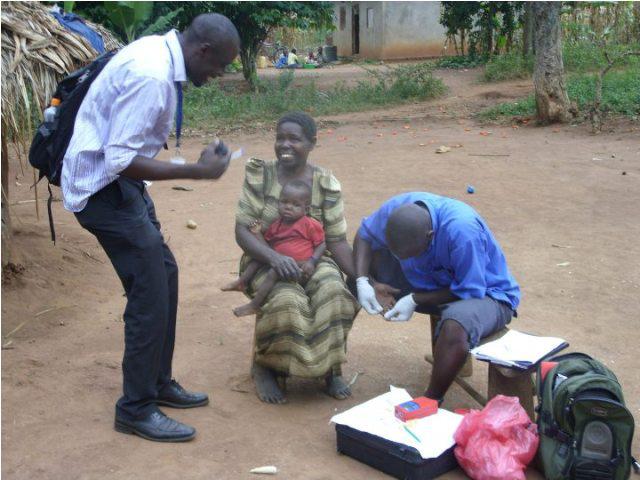Access to health services is a crucial aspect of well-being and a key component of social and economic development. Poor health levels can be detrimental to welfare and development. It is therefore clear that the health sectors will play a key role in poverty eradication and development in Uganda. This is the major reason why I am telling a story about how poor health has been a major cause of poverty in Uganda. Also, I have been a part of a team that carried out the most recent Uganda Demographic and Health Survey (UDHS 2011). I listened to various people, visited several homes, and shared stories and experiences with people from different backgrounds and managed to learn alot.
Malaria in Uganda is one of the most common infectious diseases and is an enormous public health problem. The disease is caused by protozoan parasites of the genus Plasmodium. Only four types of the plasmodium parasites can infect humans — the most serious forms of the disease are caused by Plasmodium falciparum and Plasmodium vivax, but other related species (Plasmodium ovale, Plasmodium malariae) can also affect humans. This group of human-pathogenic Plasmodium species is usually referred to as malaria parasites. Usually, people get malaria by being bitten by an infective female Anopheles mosquito. Only Anopheles mosquitoes can transmit malaria and they must have been infected through a previous blood meal taken on an infected person.
Malaria is not just a disease commonly associated with poverty, but it is also a cause of poverty and a major hindrance to economic development. The disease has been associated with major negative economic effects on regions where it is widespread. Poverty is both cause and effect, and the poor do not have the financial capacities to prevent or treat the disease. The economic impact includes costs of health care, working days lost due to sickness, days lost in education, decreased productivity due to brain damage from cerebral malaria, and loss of investment and tourism.
Sign up for news from Global Health Corps.
We’ll send periodic updates from our leaders working on the frontlines of global health around the world and share opportunities to get involved in the movement.

